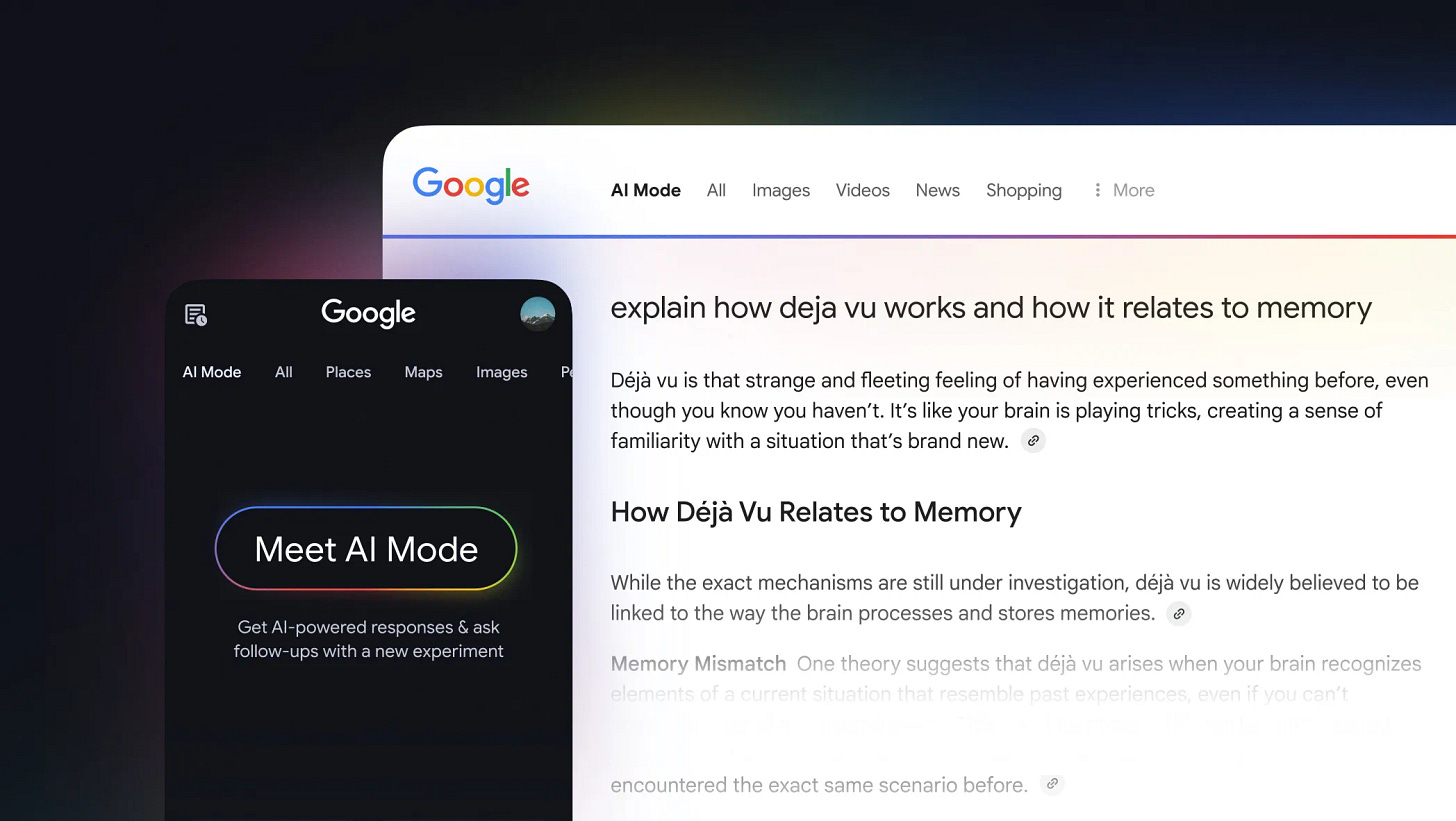Authentic Relationships, AI Agents
Why Google I/O marked the death of the 20-year search paradigm and what AI-mediated 'authentic relationships' mean for the business of culture
The Medium identifies essential signals on how technology is shaping the business of culture, and how the marketplace is evolving in response.
Anyone watching this week’s Google I/O might conclude that Google blew up its 20 year-old paradigm for the business of engagement.
Specifically, Google announced a new feature in its search engine called A.I. Mode, which is a chatbot that delivers “helpful AI-powered” responses with the ability to go further with follow-up questions and “helpful” web links. The announcement includes a concession that the longstanding search paradigm—contributing in large part to $198 billion in advertising revenues in 2024— is now outdated: AI Mode offers “more breadth and depth of information than a traditional search on Google”.
Clicks on individual links are an insufficient user interface in the age of competitors like OpenAI and Perplexity—both of which are taking market share of search away from Google—and therefore insufficient for individual engagement. The math is unforgiving: When 58% of searches already result in zero clicks, and AI search engines drive 96% less referral traffic, the traditional model seems already dead. If so, Google I/O just made it official.
If we subscribe to the premise that the business of culture is the business of engagement—and Google has been publishers' dominant source of search referral traffic—Google I/O blew that up in spectacular fashion.
So what will be the business of engagement—and by implication the business of culture—going forward?
“Plumbing” & Model Context Protocol (MCP)
Microsoft Chief Technology Officer Kevin Scott offered one explanation for this uncertainty in a recent podcast interview with The Verge’s Nilay Patel.
Key Takeaway: The business of engagement and the business of culture are evolving from Google's search-dominated model toward AI-agent mediated 'authentic' relationships that may represent the most sophisticated form of digital intermediation yet.



